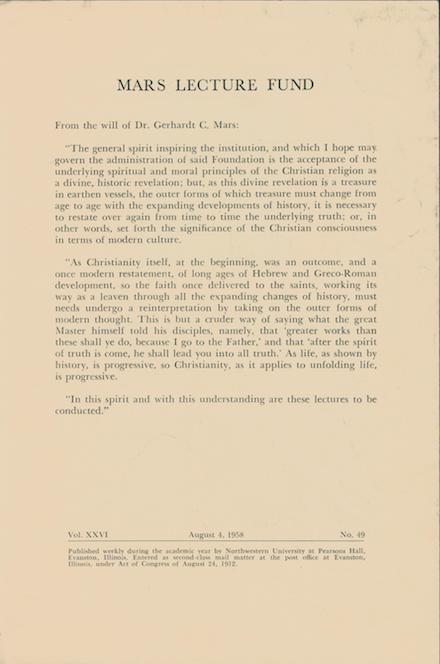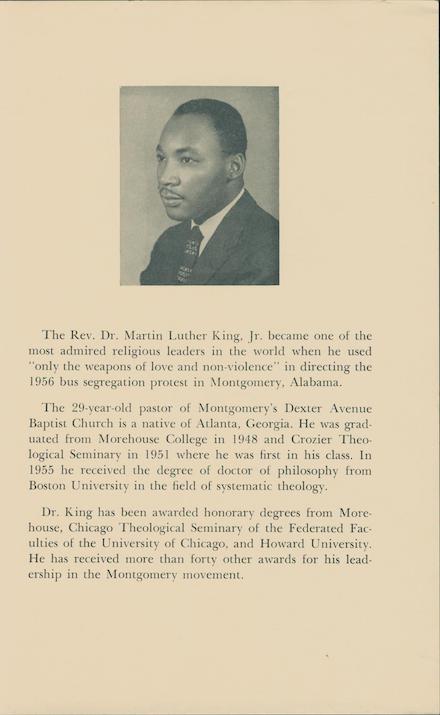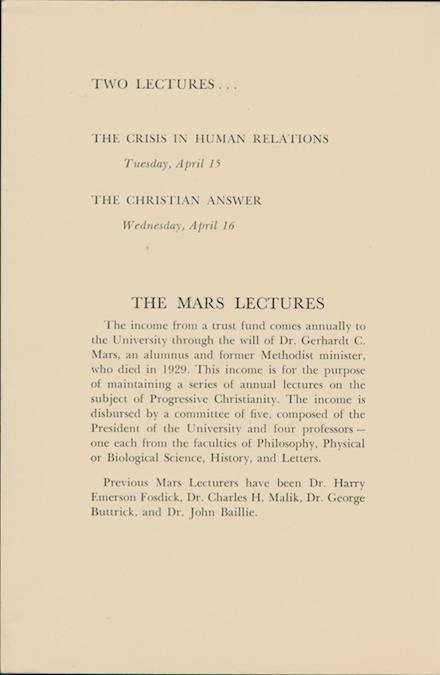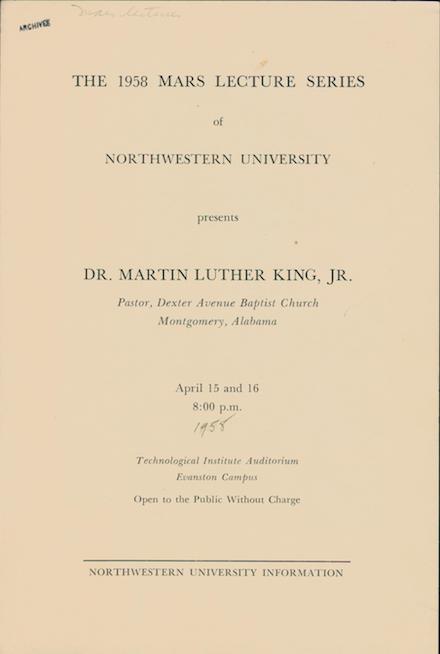Exactly 60 years ago today, in the year 1958, the Rev. Martin Luther King Jr. delivered his second of two lectures at Northwestern University to an overflow crowd in Tech. His lecture was met by a standing ovation.
A front-page article published by the Daily Northwestern on April 15, 1958 deemed King “the man who became famous by leading a bus boycott for civil rights.” King’s April 15 lecture, titled “The Crisis in Human Relations” focused on Blackness and maintaining the Civil Rights Movement.
“Framework and unity are also necessary in this fight for integration…It means a recognition of the fact that every segment of the Negro race is significant. Our final objective is civil rights,” King said.
Although America greeted King with arrests and house bombings, he insisted that the Civil Rights Movement must continue. He spoke from a position of love for his country and democracy, and emphasized the importance of persistence in efforts for equality such as integration.
“We cannot afford to slow up. We have a moral obligation to press on, our self-respect to maintain, but even more we must press on because of love for America and the democratic way of life,” King said.
Dean Adrian Randolph, of the Weinberg College of Arts and Sciences, quoted the closing of King's lecture in a recent Instagram post.
In regards to what King deemed “the Southern crisis” in the Daily's April 16 coverage of his lecture, King expressed concern for public officials’ potential to incite violence, saying that, “Many public officials, using the power of office for irresponsible behavior, are arousing morbid fears and abnormal antipathy in the uneducated masses, leading them to violence.”
Following his discussion of how white citizens’ councils use their “halo of respectability” from their “higher social and economic group” to preserve segregation, King spoke about the ugly side of progress.
“But when subject people move toward progress, they do not create a cleavage but reveal an existing one, which apologists for the old order have tried to conceal,” King said.
Despite King’s lived experience of segregation, King had hope for the future of the United States.
“Before the turn of the twentieth century, segregation on the basis of race will be non-existent,” King said.
Less than a month after King’s assassination, about 100 Northwestern students demonstrated during a 38-hour sit-in in Bursar’s Office to protest racial insensitivity on campus and then-University President Roscoe Miller's statement. The statement condemned racism without complying with most of the demands that James Turner (Weinberg '69), then-president of the Afro-American student union, submitted to Northwestern. As the 50th anniversary of the Bursar’s Office sit-in approaches, Northwestern’s Office of Institutional Diversity and Inclusion (OIDI) will offer sponsorship up to $2,500 to support opportunities that commemorate the sit-in.



